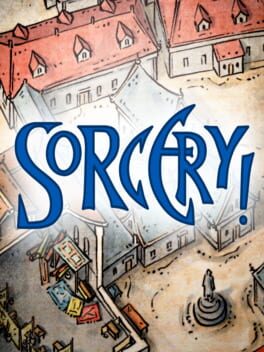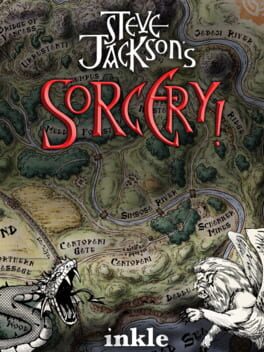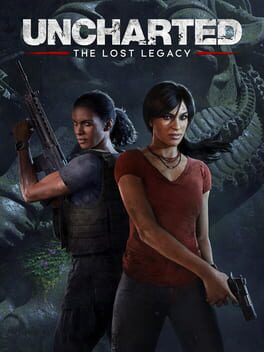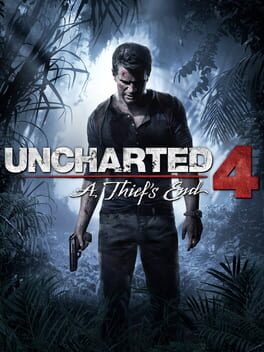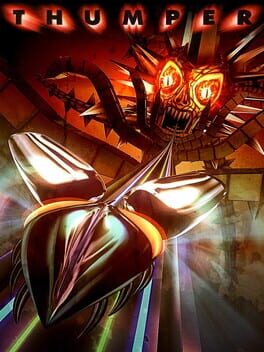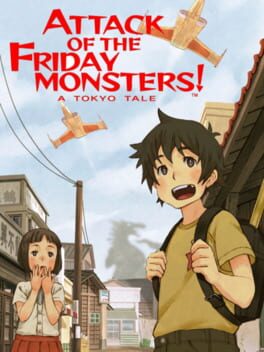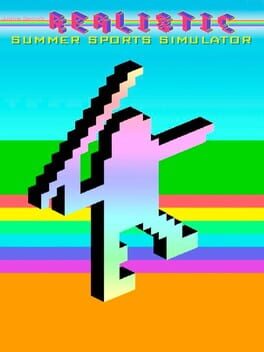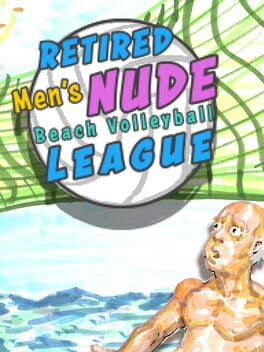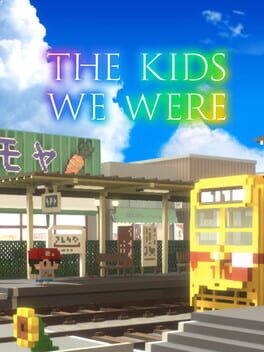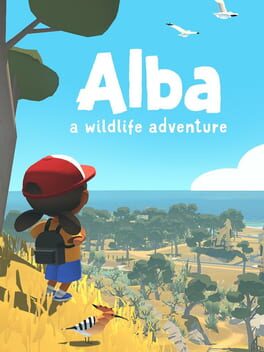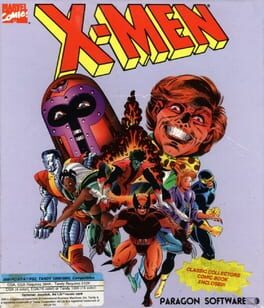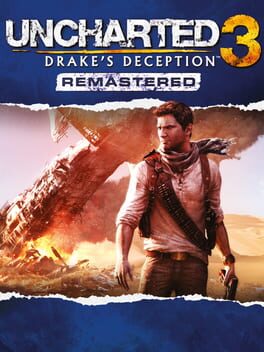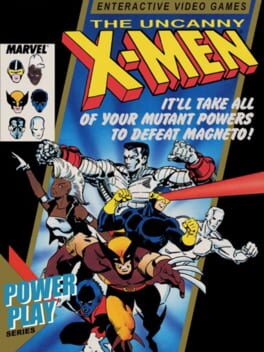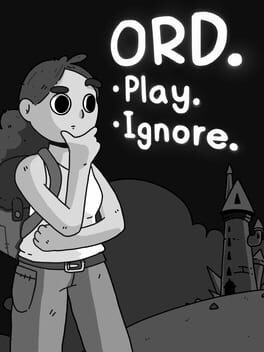2013
Donde Sorcery! ofrece la ilusión de una aventura que se siente tan urgente como apurada, en la que el nivel de tu heroísmo se marca más por tu astucia que por tu fuerza bruta o acumulación de cachivaches, Sorcery! 2 retoma un poco del modelo encorsetado y formulaico de los módulos tradicionales. La buena impresión dejada por tu incursión inicial por Kharé, una ciudad que se siente habitada en extremo, acaba convirtiéndose en un tedioso ejercicio de agotar opciones hasta encontrar las líneas necesarias que te permiten cruzar la puerta final. Es una verdadera lástima que un lugar tan interesante, tan repleto de ideas originales y con un ingenio y caracterización que ni Bioware ni Obsidian son capaces de alcanzar ni en sus mejores momentos, se vea mancillado por esta visión tan conservadora de diseño.
Si, aún así, eres capaz de superar la decepción que supone darse cuenta de cómo está montado, Sorcery! 2 continúa exactamente donde el juego original lo dejó en cuanto a plantearte un mundo en el que tu presencia cuenta y se valora, pero al mismo tiempo es capaz de continuar existiendo sin tí.
Una cosa más: Swindlestones es mejor que Gwen.
------------------------------------------
Where Sorcery! offers the illusion of an adventure that feels as urgent and tense, in which heroism isn't found in brute force of gadget accumulation but your cunning alone, Sorcery! 2 takes up a step back towards a formulaic and traditional model of module dungeon. Your very good impressions left after your first foray through Kharé wind up to a tedious exercise of option exhaust and item collecting. It's a real shame that such an interesting city, one that feels so lived and full of so many colorful characters that Bioware and Obsidian would never be able to conjure, is tainted by such conservative design.
If you're somehow able to get past the initial disappointment, Sorcery! 2 will pick you up exactly where the original entry left off, and will convince that your choices matter insofar as this city and its inhabitants will be able to live without you just fine.
One more thing: Swindlestones is better than Gwent.
Si, aún así, eres capaz de superar la decepción que supone darse cuenta de cómo está montado, Sorcery! 2 continúa exactamente donde el juego original lo dejó en cuanto a plantearte un mundo en el que tu presencia cuenta y se valora, pero al mismo tiempo es capaz de continuar existiendo sin tí.
Una cosa más: Swindlestones es mejor que Gwen.
------------------------------------------
Where Sorcery! offers the illusion of an adventure that feels as urgent and tense, in which heroism isn't found in brute force of gadget accumulation but your cunning alone, Sorcery! 2 takes up a step back towards a formulaic and traditional model of module dungeon. Your very good impressions left after your first foray through Kharé wind up to a tedious exercise of option exhaust and item collecting. It's a real shame that such an interesting city, one that feels so lived and full of so many colorful characters that Bioware and Obsidian would never be able to conjure, is tainted by such conservative design.
If you're somehow able to get past the initial disappointment, Sorcery! 2 will pick you up exactly where the original entry left off, and will convince that your choices matter insofar as this city and its inhabitants will be able to live without you just fine.
One more thing: Swindlestones is better than Gwent.
2013
Muy entretenido, la verdad. Los mundos de Fighting Fantasy y Sorcery! siempre han permanecido apartados de las conversaciones en torno a videojuegos, pero su importancia histórica como antecesores del tipo de diálogo complicado que juegos más caros y chupa-cámaras se vanaglorian de innovar los hace inmortales. Al igual que sucediera en Baldur's Gate, la lenta pero constante progresión de dificultad, sumada a la libertad que se te ofrece para tomar una ruta, conseguir unos objetos u otros, y en general adoptar una actitud u otra ante el mundo de Titan, hacen de éste un lugar mucho más misterioso e insondable que incontables mundos abiertos desesperados por enseñarte todas las esquinas de su mapa.
------------------------
A highly entertaining game, indeed. The worlds of Fighting Fantasy and Sorcery! have always remained apart in conversations around videogames, but their historical importance as predecessors for dialogue-based gaming that more expensive and attention seeking games boast around proves their eternal value. As with Baldur's Gate, the slow but steady progression of difficulty, coupled with the freedom you're given to take a route, get some items or others, and generally adopt whatever action you wish in the world of Titan, makes this setting far more mysterious and wondrous than countless desperate open worlds.
------------------------
A highly entertaining game, indeed. The worlds of Fighting Fantasy and Sorcery! have always remained apart in conversations around videogames, but their historical importance as predecessors for dialogue-based gaming that more expensive and attention seeking games boast around proves their eternal value. As with Baldur's Gate, the slow but steady progression of difficulty, coupled with the freedom you're given to take a route, get some items or others, and generally adopt whatever action you wish in the world of Titan, makes this setting far more mysterious and wondrous than countless desperate open worlds.
¿Cómo de irónico es que, tras más de 10 años intentando crear un estilo propio, Uncharted acabó su andadura pareciéndose a Tomb Raider más que los Tomb Raider de ahora?
Al margen de esta take, no hay mucho que decir de Lost Legacy que no se aplicara ya en Thief's End. El estilo de juego está más pulido que nunca, y la capacidad de saltar entre modo sigilo y modo acción se siente completamente implementada. Por desgracia, tu Chloe Frazer parece más susceptible que nunca a ir por donde no quieres que vaya. Una consecuencia inevitable de hacer tus juegos más "realistas", pero no más interactivos. El ritmo de juego, aunque un poco comprimido para mi gusto, mantiene una intensidad correcta todo el tiempo, y sus puntos álgidos parecen la conclusión más lógica de lo que Naughty Dog venía haciendo, a nivel de mapeado, desde Last of Us. El hecho de que se haga corto tal vez sea un punto a su favor.
No tengo mucho que decir con respecto a la historia. Como ya pasara con Uncharted 4, hay mucha promesa de profundidad temática, pero muy poca exploración genuina. Lost Legacy se sale con la suya un poco porque cuenta con personajes ya establecidos para contar su historia, pero me cuesta imaginarme a nadie sintiendo nada por Chloe y Nadine si no las conocieran de antemano. Sin ese soporte, lo único que tienes es una historia de acción competente con vagas aspiraciones a relato de empoderamiento femenino de etiqueta.
Con todo, se siente que hemos llegado al final de un camino aquí. Mi más sincera enhorabuena a Naughty Dog por alcánzar el cénit de su aspiración artística: parecer una película de Marvel.
----------------------------
How ironic is it that, after more than 10 years of trying to create its own style, Uncharted ended up resembling more Tomb Raider than Tomb Raider today?
Aside from this take, there's not much to say about Lost Legacy that doesn't apply to Thief's End. The gameplay is more polished than ever, and the ability to jump between stealth and action mode feels fully streamlined. Unfortunately, Chloe Frazer is very susceptible to getting where you never want to, a sad consequence of making your games more "realistic" but not more interactive. The pacing of the game, while a bit too compressed for my taste, maintains its intensity throughout, and its climaxes seem like logical endpoints to what Naughty Dog had been doing, map-wise, since Last of Us. The fact that it's short is perhaps a point in its favor also.
I don't have much to say about the story. As with U4, there's a promise of thematic exploration, but very little of it. Lost Legacy gets away with it by using already established characters, but I have a hard time imagining anyone feeling anything for Chloe and Nadine if they didn't know them beforehand. Without that, all you have is a competent action story with vague aspirations of female empowerment.
Despite that, it's truly like we reached the end of a road here. My sincere congratulations to Naughty Dog for reaching the zenith of their artistic aspiration: looking like a Marvel movie.
Al margen de esta take, no hay mucho que decir de Lost Legacy que no se aplicara ya en Thief's End. El estilo de juego está más pulido que nunca, y la capacidad de saltar entre modo sigilo y modo acción se siente completamente implementada. Por desgracia, tu Chloe Frazer parece más susceptible que nunca a ir por donde no quieres que vaya. Una consecuencia inevitable de hacer tus juegos más "realistas", pero no más interactivos. El ritmo de juego, aunque un poco comprimido para mi gusto, mantiene una intensidad correcta todo el tiempo, y sus puntos álgidos parecen la conclusión más lógica de lo que Naughty Dog venía haciendo, a nivel de mapeado, desde Last of Us. El hecho de que se haga corto tal vez sea un punto a su favor.
No tengo mucho que decir con respecto a la historia. Como ya pasara con Uncharted 4, hay mucha promesa de profundidad temática, pero muy poca exploración genuina. Lost Legacy se sale con la suya un poco porque cuenta con personajes ya establecidos para contar su historia, pero me cuesta imaginarme a nadie sintiendo nada por Chloe y Nadine si no las conocieran de antemano. Sin ese soporte, lo único que tienes es una historia de acción competente con vagas aspiraciones a relato de empoderamiento femenino de etiqueta.
Con todo, se siente que hemos llegado al final de un camino aquí. Mi más sincera enhorabuena a Naughty Dog por alcánzar el cénit de su aspiración artística: parecer una película de Marvel.
----------------------------
How ironic is it that, after more than 10 years of trying to create its own style, Uncharted ended up resembling more Tomb Raider than Tomb Raider today?
Aside from this take, there's not much to say about Lost Legacy that doesn't apply to Thief's End. The gameplay is more polished than ever, and the ability to jump between stealth and action mode feels fully streamlined. Unfortunately, Chloe Frazer is very susceptible to getting where you never want to, a sad consequence of making your games more "realistic" but not more interactive. The pacing of the game, while a bit too compressed for my taste, maintains its intensity throughout, and its climaxes seem like logical endpoints to what Naughty Dog had been doing, map-wise, since Last of Us. The fact that it's short is perhaps a point in its favor also.
I don't have much to say about the story. As with U4, there's a promise of thematic exploration, but very little of it. Lost Legacy gets away with it by using already established characters, but I have a hard time imagining anyone feeling anything for Chloe and Nadine if they didn't know them beforehand. Without that, all you have is a competent action story with vague aspirations of female empowerment.
Despite that, it's truly like we reached the end of a road here. My sincere congratulations to Naughty Dog for reaching the zenith of their artistic aspiration: looking like a Marvel movie.
Como manera de cerrar la historia de uno de los personajes más insípidos de la historia del videojuego, Uncharted 4 recurre a las estéticas y técnicas de la televisión de prestigio de las últimas décadas y, por el camino, intenta ofrecer algo más de dinamismo a la cansadísima fórmula de la trilogía original. El resultado es algo que se siente, a partes iguales, más completo e inacabado que la trilogía original
Mucho más que como juego de Nathan Drake, este juego se interpreta mejor como un trabajo de Neil Druckmann. Todas las estrategias que él se ha asegurado de asociar a su marca (la tendencia mecánica al realismo, la estricta separación entre espacio narrativo y espacio de juego, la opción de aunar sigilo con acción y la insistencia en el melodrama) están presentes aquí, con Bruce Straley haciendo las veces de garante de que el ritmo original de la franquicia no se pierda por el camino. Gracias a esto, el juego se siente más dinámico y entretenido que la trilogía original, bien que sin escapar a su condición de pasillo híper-decorado con apenas leves concesiones a la exploración. En términos de jugabilidad, la crítica original dirigida a los juegos originales sobre la (en mi opinión, inexistente) disonancia entre su violencia y su tono se intensifica aquí, no sólo por añadir el sigilo, sino por insertar varios elementos de conflicto menores (forcejear con malos que caen por la cornisa, hacerles caer su granada...). El resultado es un juego que, como ya digo, se juega bien a ratos, pero que en su última mitad comienza a esforzarse visiblemente por mantenerse interesante.
La decisión de Druckmann de convertir el (en gran parte invisible) trasfondo de Nathan Drake en sujeto central de esta aventura final choca diametralmente con el enfoque que Amy Henning, en entradas anteriores, había puesto en las secuencias de acción y el presente. Druckmann tiene obvias preferencias de guion que obliga al juego a adaptar (siempre que puede, por ejemplo, se asegura de que Drake esté acompañado de su hermano o mujer), pero su esfuerzo por introducir ambigüedad y complejidad a lo que, hasta ahora, había sido un personaje increíblemente plano genera un conflicto irresoluble. Al final de todo, Uncharted 4 cree en la redención de sus protagonistas incluso si, por el camino, les reconoce bajezas morales bastante imperdonables. Un texto más atrevido se hubiera adentrado en cómo una relación fraternal como la de Nathan y Sam, o matrimonial como la de Elena y Nathan, implica choques personales de los que no se puede salir airade. Pero imagino que al comité de Naughty Dog no le gustaba la idea, y prefirió un desenlace digno de una película de Disney Channel.
--------------------------------------------------
As a way to cap off the story of one of the most insipid characters in video game history, Uncharted 4 attempts to offer some dynamism to its tired formula by drawing on the aesthetics and techniques of last decade's prestige television. The result is something that feels more complete yet more unfinished than the original trilogy at the same time.
Much more than as an Uncharted game, this game is better seen as a Neil Druckmann game. All the strategies he has associated his brand with (mechanical tendency towards realism, strict separation between narrative and gameplay spaces, the ability to combine stealth with action, insistence on melodrama) are present here, with Bruce Straley guaranteeing that the original rhythm of the franchise doesn't get lost in the process. Thanks to this, the game certainly feels more dynamic and entertaining, but without leaving its status as a highly detailed corridor with barely any concession openness. In gameplay terms, the original criticism aimed at the original titles about the the (in my opinion, non-existent) dissonance between their violence and tone gets intensified not just by adding stealth, but by inserting minor conflict instances (grappling with bad guys falling over the ledge, making them drop their grenade...). As a consequence of this, the games plays itself pretty well at times, but its latter half begins to visibly struggle to keep up.
Druckmann's decision to make Nathan Drake's (largely invisible) backstory the central subject of this final adventure clashes diametrically with the focus that Amy Henning, in previous entries, had placed on the action sequences. Druckmann has obvious script preferences that he forces the game into (whenever he can, for example, he makes sure Drake is accompanied by his brother or wife), but his effort to introduce ambiguity and complexity to what, until now, had been an incredibly flat character make for an unresolvable conflict. At the end of the day, Uncharted 4 believes in the redemption of its protagonists even if, along the way, it acknowledges their moral failings. A bolder text would have delved into how brotherly relationship like Nathan and Sam's, or marital ones like Elena and Nathan's, involves personal clashes from which one cannot emerge gracefully. But I imagine that the Naughty Dog committee did not like the idea and preferred an denouement worthy of a Disney Channel movie.
Mucho más que como juego de Nathan Drake, este juego se interpreta mejor como un trabajo de Neil Druckmann. Todas las estrategias que él se ha asegurado de asociar a su marca (la tendencia mecánica al realismo, la estricta separación entre espacio narrativo y espacio de juego, la opción de aunar sigilo con acción y la insistencia en el melodrama) están presentes aquí, con Bruce Straley haciendo las veces de garante de que el ritmo original de la franquicia no se pierda por el camino. Gracias a esto, el juego se siente más dinámico y entretenido que la trilogía original, bien que sin escapar a su condición de pasillo híper-decorado con apenas leves concesiones a la exploración. En términos de jugabilidad, la crítica original dirigida a los juegos originales sobre la (en mi opinión, inexistente) disonancia entre su violencia y su tono se intensifica aquí, no sólo por añadir el sigilo, sino por insertar varios elementos de conflicto menores (forcejear con malos que caen por la cornisa, hacerles caer su granada...). El resultado es un juego que, como ya digo, se juega bien a ratos, pero que en su última mitad comienza a esforzarse visiblemente por mantenerse interesante.
La decisión de Druckmann de convertir el (en gran parte invisible) trasfondo de Nathan Drake en sujeto central de esta aventura final choca diametralmente con el enfoque que Amy Henning, en entradas anteriores, había puesto en las secuencias de acción y el presente. Druckmann tiene obvias preferencias de guion que obliga al juego a adaptar (siempre que puede, por ejemplo, se asegura de que Drake esté acompañado de su hermano o mujer), pero su esfuerzo por introducir ambigüedad y complejidad a lo que, hasta ahora, había sido un personaje increíblemente plano genera un conflicto irresoluble. Al final de todo, Uncharted 4 cree en la redención de sus protagonistas incluso si, por el camino, les reconoce bajezas morales bastante imperdonables. Un texto más atrevido se hubiera adentrado en cómo una relación fraternal como la de Nathan y Sam, o matrimonial como la de Elena y Nathan, implica choques personales de los que no se puede salir airade. Pero imagino que al comité de Naughty Dog no le gustaba la idea, y prefirió un desenlace digno de una película de Disney Channel.
--------------------------------------------------
As a way to cap off the story of one of the most insipid characters in video game history, Uncharted 4 attempts to offer some dynamism to its tired formula by drawing on the aesthetics and techniques of last decade's prestige television. The result is something that feels more complete yet more unfinished than the original trilogy at the same time.
Much more than as an Uncharted game, this game is better seen as a Neil Druckmann game. All the strategies he has associated his brand with (mechanical tendency towards realism, strict separation between narrative and gameplay spaces, the ability to combine stealth with action, insistence on melodrama) are present here, with Bruce Straley guaranteeing that the original rhythm of the franchise doesn't get lost in the process. Thanks to this, the game certainly feels more dynamic and entertaining, but without leaving its status as a highly detailed corridor with barely any concession openness. In gameplay terms, the original criticism aimed at the original titles about the the (in my opinion, non-existent) dissonance between their violence and tone gets intensified not just by adding stealth, but by inserting minor conflict instances (grappling with bad guys falling over the ledge, making them drop their grenade...). As a consequence of this, the games plays itself pretty well at times, but its latter half begins to visibly struggle to keep up.
Druckmann's decision to make Nathan Drake's (largely invisible) backstory the central subject of this final adventure clashes diametrically with the focus that Amy Henning, in previous entries, had placed on the action sequences. Druckmann has obvious script preferences that he forces the game into (whenever he can, for example, he makes sure Drake is accompanied by his brother or wife), but his effort to introduce ambiguity and complexity to what, until now, had been an incredibly flat character make for an unresolvable conflict. At the end of the day, Uncharted 4 believes in the redemption of its protagonists even if, along the way, it acknowledges their moral failings. A bolder text would have delved into how brotherly relationship like Nathan and Sam's, or marital ones like Elena and Nathan's, involves personal clashes from which one cannot emerge gracefully. But I imagine that the Naughty Dog committee did not like the idea and preferred an denouement worthy of a Disney Channel movie.
2016
Un juego con una premisa inteligente, original y atractiva, que por desgracia se desinfla al cabo de varios niveles y de confundir los sonidos.
Thumper es un juego que te invita a sumergirte en un estado de absoluta sincronía con los ritmos más básicos de la música. Su percusión rítmica y sorda me recuerda a los increíbles tambores de la banda sonora de Mad Max: Fury Road. En ese sentido, se trata de un ruido tan atractivo que una parte mía ha querido seguir jugando hasta el final, incluso cuando deseaba tirar el mando con todas mis fuerzas y mandarlo todo al carajo. Incluso con ese logro, tengo la impresión de que trata de abarcar tantas variedades y ritmos que pierde el potencial logrado en sus momentos más triunfales. Cinco niveles, sólo pedía cinco niveles!
------------------------------------
A game with an intelligent, original and attractive premise, which unfortunately deflates after several levels of confusion and frustration.
Thumper is a game that invites you to immerse yourself in a state of absolute synchrony with very basic music rhythms. Its repetitive percussion reminds me of the incredible drums of the Mad Max: Fury Road soundtrack. In that sense, it's such an engaging noise that a part of me wanted to keep playing to the end, even when I couldn't take it anymore and wanted to throw the controller away. Having said that, I get the impression that it tries to embrace so much variety that it loses the potential reached at its most triumphant. Five levels, I was only needing five levels!
Thumper es un juego que te invita a sumergirte en un estado de absoluta sincronía con los ritmos más básicos de la música. Su percusión rítmica y sorda me recuerda a los increíbles tambores de la banda sonora de Mad Max: Fury Road. En ese sentido, se trata de un ruido tan atractivo que una parte mía ha querido seguir jugando hasta el final, incluso cuando deseaba tirar el mando con todas mis fuerzas y mandarlo todo al carajo. Incluso con ese logro, tengo la impresión de que trata de abarcar tantas variedades y ritmos que pierde el potencial logrado en sus momentos más triunfales. Cinco niveles, sólo pedía cinco niveles!
------------------------------------
A game with an intelligent, original and attractive premise, which unfortunately deflates after several levels of confusion and frustration.
Thumper is a game that invites you to immerse yourself in a state of absolute synchrony with very basic music rhythms. Its repetitive percussion reminds me of the incredible drums of the Mad Max: Fury Road soundtrack. In that sense, it's such an engaging noise that a part of me wanted to keep playing to the end, even when I couldn't take it anymore and wanted to throw the controller away. Having said that, I get the impression that it tries to embrace so much variety that it loses the potential reached at its most triumphant. Five levels, I was only needing five levels!
El primer elemento que llama la atención en Attack of the Friday Monsters es el intenso paraje sonoro que lo impregna. Pasear por la pequeña aldea de Fuji no Hana es como sumergirte en una piscina de sonidos que capturan un momento ficticio, pero muy vívido, del suburbio japonés. A partir de ahí, el diálogo y las animaciones colaboran constantemente para insistirte en que ésta es una infancia compartida por toda una generación.
Cualquiera que haya jugado a algo de Kaz Ayabe y Millennium Kitchen sabe que éstos siempre han sido los puntos fuertes de su carrera artística, que aquí se utilizan para transmitir un mensaje muy sencillo pero poderoso: que la ficción nos forma en igual medida que nosotres moldeamos la ficción. En más de una ocasión el juego recurre a lugares comunes que este tipo de género viene repitiendo desde los tiempos de Totoro, si no antes. Lo que le hace destacar es su tremendo respeto al horizonte emocional de la juventud sin por ello esconder que se trata de un horizonte ficticio, sostenido por una mezcla de ignorancia deliberada y complicidad de les adultes.
En este respecto, es preciso que señale el increíble trabajo hecho por el equipo de localización a la hora de adaptar las idiosincrasias de Millennium Kitchen al inglés, porque no tuvo que ser fácil. Si hay una única cosa que impide a este juego ser un triunfo artístico indiscutible es el hecho de que el juego de cartas (que personalmente me encanta y adoro cómo se integra con las dinámicas de los chavales) ofusca la parte final de la obra, cuando se te permite al fin deambular por la ciudad a tu gusto.
--------------------------
The first thing that catches your eye (or rather, your ear) in Attack of the Friday Monsters is its soundscape. Strolling through the small village of Fuji no Hana is like diving into the pool of a very real, albeit fictitious, slice of Japanese suburbia. From that point on, dialogue and animations alike are in constant cahoots to convince that this is a real fragment of many people's childhoods.
Anyone who has played anything by Kaz Ayabe and Millennium Kitchen knows that these elements have always been their forte, and here they are used to convey a very simple but powerful message: that fiction shapes us as much as we shape fiction. On more than one occasion the game resorts to genre tropes that have been repeated since My Neighbor Totoro, if not before. What makes it stand out is its tremendous respect towards the emotional horizon of youth without hiding the fact of how fragile it is, sustained by a mixture of wilful ignorance and adult complicity.
In this regard, I must give kudos to the incredible localization of this game. It must've been hard to adapt Millennium Kitchen's stuff into English. If there is one thing that prevents this game from becoming an artistic triumph is the fact that the card game (which I personally love and adore how it integrates with the kids' dynamics) obfuscates the final part of the game, when you are finally allowed to wander around the city as you please.
Cualquiera que haya jugado a algo de Kaz Ayabe y Millennium Kitchen sabe que éstos siempre han sido los puntos fuertes de su carrera artística, que aquí se utilizan para transmitir un mensaje muy sencillo pero poderoso: que la ficción nos forma en igual medida que nosotres moldeamos la ficción. En más de una ocasión el juego recurre a lugares comunes que este tipo de género viene repitiendo desde los tiempos de Totoro, si no antes. Lo que le hace destacar es su tremendo respeto al horizonte emocional de la juventud sin por ello esconder que se trata de un horizonte ficticio, sostenido por una mezcla de ignorancia deliberada y complicidad de les adultes.
En este respecto, es preciso que señale el increíble trabajo hecho por el equipo de localización a la hora de adaptar las idiosincrasias de Millennium Kitchen al inglés, porque no tuvo que ser fácil. Si hay una única cosa que impide a este juego ser un triunfo artístico indiscutible es el hecho de que el juego de cartas (que personalmente me encanta y adoro cómo se integra con las dinámicas de los chavales) ofusca la parte final de la obra, cuando se te permite al fin deambular por la ciudad a tu gusto.
--------------------------
The first thing that catches your eye (or rather, your ear) in Attack of the Friday Monsters is its soundscape. Strolling through the small village of Fuji no Hana is like diving into the pool of a very real, albeit fictitious, slice of Japanese suburbia. From that point on, dialogue and animations alike are in constant cahoots to convince that this is a real fragment of many people's childhoods.
Anyone who has played anything by Kaz Ayabe and Millennium Kitchen knows that these elements have always been their forte, and here they are used to convey a very simple but powerful message: that fiction shapes us as much as we shape fiction. On more than one occasion the game resorts to genre tropes that have been repeated since My Neighbor Totoro, if not before. What makes it stand out is its tremendous respect towards the emotional horizon of youth without hiding the fact of how fragile it is, sustained by a mixture of wilful ignorance and adult complicity.
In this regard, I must give kudos to the incredible localization of this game. It must've been hard to adapt Millennium Kitchen's stuff into English. If there is one thing that prevents this game from becoming an artistic triumph is the fact that the card game (which I personally love and adore how it integrates with the kids' dynamics) obfuscates the final part of the game, when you are finally allowed to wander around the city as you please.
Una experiencia entretenida, aunque algo hueca. El placer inherente a mover los monigotes de un lado a otro se complica cuando empiezas a entender las exigencias específicas de cada juego, y en base a tu estado de ánimo, querrás hacerlo lo mejor posible o de la peor manera concebible. A pesar de su falta de profundidad, el deseo de hacerlo bien aquí te pone en vilo contra la naturaleza elástica de les competidores, y al igual que sucede con los trabajos de Bennett Foddy, despiertan un sentimiento de superación.
-----------------------------------------
This was an entertaining, if somewhat hollow experience. The inherent pleasure of moving the sticks around is problematized as you begin to get the logic behind each game. Depending on your mood, you'll either want to perform as flawlessly as possible or in the worst ways. Despite its lack of depth, the desire to do it right faces you against the elastic nature of the competitors, and as in Bennett Foddy's work, they instill upon you a desire to improve.
-----------------------------------------
This was an entertaining, if somewhat hollow experience. The inherent pleasure of moving the sticks around is problematized as you begin to get the logic behind each game. Depending on your mood, you'll either want to perform as flawlessly as possible or in the worst ways. Despite its lack of depth, the desire to do it right faces you against the elastic nature of the competitors, and as in Bennett Foddy's work, they instill upon you a desire to improve.
Retired Men's Nude Beach Volleyball League es un juego de voley extremadamente simple que adorna una confesión personal que me ha pegado con la fuerza de una apisonadora. La incomunicación ha sido una obsesión que me ha acompañado toda la vida, y los inicios de este juego la tratan con una poesía que creo que merece admirarse. Donde empieza a perderme es cuando decide traspasar su artificio y arrojarte hacia una moraleja final. Cada día estoy más convencido del daño que Barlow y Mullins han traído a nuestra capacidad para escribir poesía con el medio.
En cuanto a cómo se juega, no puedo decir que se trate de una obra profunda, pero tampoco tengo tanta experiencia con simuladores de voley. Paddle Mania es mi referente más cercano para juzgar estas cosas. Pero creo que la decisión de esconder el aspecto inacabado de la obra con la ficción del programador anciano está bien, aunque demasiado conveniente.
----------------------------------
Retired Men's Nude Beach Volleyball League is an extremely simple volleyball game that hides a personal confession that hits me like a steamroller. Lack of communication has been a lifelong obsession of mine, and the first stages of the game treat it with a poetry that deserves recognition. Where it starts to lose me is when it decides to go beyond its artifice and moralize you. Every day I am more convinced that Barlow and Mullins are harming our ability to write games more beautifully.
As for how it plays, I can't say it's a deep piece of work, but then again, I don't have that much experience with volleyball simulators either. Paddle Mania is my closest benchmark for judging these things. But I think the decision to hide the unfinished aspect of the play with the fiction of the aging programmer is fine, if a bit too convenient.
En cuanto a cómo se juega, no puedo decir que se trate de una obra profunda, pero tampoco tengo tanta experiencia con simuladores de voley. Paddle Mania es mi referente más cercano para juzgar estas cosas. Pero creo que la decisión de esconder el aspecto inacabado de la obra con la ficción del programador anciano está bien, aunque demasiado conveniente.
----------------------------------
Retired Men's Nude Beach Volleyball League is an extremely simple volleyball game that hides a personal confession that hits me like a steamroller. Lack of communication has been a lifelong obsession of mine, and the first stages of the game treat it with a poetry that deserves recognition. Where it starts to lose me is when it decides to go beyond its artifice and moralize you. Every day I am more convinced that Barlow and Mullins are harming our ability to write games more beautifully.
As for how it plays, I can't say it's a deep piece of work, but then again, I don't have that much experience with volleyball simulators either. Paddle Mania is my closest benchmark for judging these things. But I think the decision to hide the unfinished aspect of the play with the fiction of the aging programmer is fine, if a bit too convenient.
2020
Como reflejo de cierto tipo de historias que autores como Makoto Shinkai y Naoko Yamada han puesto de moda, The Kids we Were es un aporte exitoso, que tampoco original, de la ola de obras nostálgicas recientes que están tratando de recuperarle la vitalidad a la generación de la Década Perdida. Principalmente, tratan de hacerlo haciendo que se pregunten cosas como: ¿Han tratado de mantener la ilusión de su infancias? ¿Han perdido algo en su viaje a la madurez? ¿Qué deberían cambiar, si quisieran volver a tenerla? The Kids we Were tantea con las líneas más severas de este género y navega temáticas y situaciones duras, parecidas al trabajo de Yuro Somino, pero no se atreve a aterrizar esas conclusiones. Una lectura amable defenderá esta decisión diciendo que GAGEX no quiere terminar su juego de 6 horas con una nota amarga, e invita a que interpretes la heroica sección final como una escapada al lago, como Tim Burton y su final imaginado de Big Fish. Hasta donde sé, puedo decir que me alegra que hayamos llegado a un punto en el que el turismo japonés nostálgico ha podido volverse un poco más mordiente y atrevido que algo como Nostalgic Train (que espero que podamos dejar atrás para siempre). Pero incluso una mirada irónica y despegada como ésta sigue insistiendo en las mismas consignas una y otra vez desde 2007 con 5 Centímetros por Segundo. Creo que ha llegado la hora de que este género avance en sus tesis.
----------------------------
Reflecting on a certain type of story that authors like Makoto Shinkai and Naoko Yamada have made fashionable, The Kids We Were is a successful, if not original, contribution to the wave of recent nostalgic works that try to re-instill some sense of wonder on the Lost Decade generation, mainly by making them ponder about things like: Have they tried to maintain the illusion of their childhood? Have they lost something in their journey to maturity? What should they change, if they wanted to recover it? The Kids we Were tinkers with the more severe lines of this genre and navigates tough themes and situations that are similar to works from authors like Yuro Somino, but does not dare to land near their conclusions. A kind interpretation of this will argue this decision by saying that GAGEX doesn't want to end its 6-hour romp on a sour note, and invites you to interpret the heroic finale as a somewhat dreamlike ending, a la Tim Burton in Big Fish. As far as I can tell, I'm glad we've reached a point where nostalgic Japanese tourism has been able to become a bit more biting and daring than something like Nostalgic Train (which I hope we can finally put behind). But even a wry, detached look like this still harps on the same slogans since 2007's 5 Centimeters Per Second. I think it's time for the genre to move on.
----------------------------
Reflecting on a certain type of story that authors like Makoto Shinkai and Naoko Yamada have made fashionable, The Kids We Were is a successful, if not original, contribution to the wave of recent nostalgic works that try to re-instill some sense of wonder on the Lost Decade generation, mainly by making them ponder about things like: Have they tried to maintain the illusion of their childhood? Have they lost something in their journey to maturity? What should they change, if they wanted to recover it? The Kids we Were tinkers with the more severe lines of this genre and navigates tough themes and situations that are similar to works from authors like Yuro Somino, but does not dare to land near their conclusions. A kind interpretation of this will argue this decision by saying that GAGEX doesn't want to end its 6-hour romp on a sour note, and invites you to interpret the heroic finale as a somewhat dreamlike ending, a la Tim Burton in Big Fish. As far as I can tell, I'm glad we've reached a point where nostalgic Japanese tourism has been able to become a bit more biting and daring than something like Nostalgic Train (which I hope we can finally put behind). But even a wry, detached look like this still harps on the same slogans since 2007's 5 Centimeters Per Second. I think it's time for the genre to move on.
Tal vez se deba al hecho de que la naturaleza tan idealizada de este libro de colores para adultos contrasta mucho con mi propia experiencia de niño, pero hay cierto carácter impostado en las formas de este juego que me echa un poco para atrás. Lo peor de todo, en mi opinión, es que a las criaturas de esta historia no se les permite, ante todo, ser criaturas. En vez de jugar a explorar por tu cuenta, meterte en líos e ir un poco a la tuya por la isla del Secarral (ya sea para matar el aburrimiento o incordiar a tu familia), juegas el papel de una niña híper-idealizada que puede hacer literalmente cualquier cosa que se le proponga. A un juego con tan poca profundidad se le va la vida, en mi opinión, cuando intenta meterte muchas tareas a la vez. Al final, lo único que haces es recolectar y rellenar el cuaderno de las tareas, y no creo que eso esa lo que unas vacaciones deberían ser.
--------------------------------------------
Perhaps it's due to the fact that this adult coloring book contrasts so sharply with my own experience as a child that used to vacation in a similar place, but there's a fakeness to this work that turns me off. The clearest example I can offer is that the children of the game are never allowed to act as children. Instead of exploring on your own or getting into shenanigans because you want to kill boredom or annoy your family, you act as this highly idealized girl who's the best at everything they ask her to be. A game with so little depth loses me when it tries to cram so many tasks at once. In the end, all you're doing is collecting and filling in your notebook, which is not what vacations should be about.
--------------------------------------------
Perhaps it's due to the fact that this adult coloring book contrasts so sharply with my own experience as a child that used to vacation in a similar place, but there's a fakeness to this work that turns me off. The clearest example I can offer is that the children of the game are never allowed to act as children. Instead of exploring on your own or getting into shenanigans because you want to kill boredom or annoy your family, you act as this highly idealized girl who's the best at everything they ask her to be. A game with so little depth loses me when it tries to cram so many tasks at once. In the end, all you're doing is collecting and filling in your notebook, which is not what vacations should be about.
2023
Por encima de todo, este mod es muy cool. Es dinámico, incentiva la exploración y se trata de un puzzle entretenido de resolver. Pero más allá de eso, es una carta de amor a una comunidad tan llena de ideas y creatividad que no puedes evitar sentirte bien jugando a el. Su estilo mecánico puede sentirse alejado de la fórmula que mucha gente entiende que Doom fue, pero este juego está más cerca del Doom original que su remake.
He escrito sobre My House en Nivel Oculto, por si queréis leer más: https://niveloculto.com/analisis-my-house-wad/
---------------------
Firstly, this mod is very cool. It's dynamic, it encourages exploration, and it's an entertaining puzzle to solve. But beyond that, it's a love letter to a community so full of ideas that you can't help but feel good playing it. Its mechanical style may feel far removed from the formula that many people think the original Doom was about, but this game is closer to the originals than their remakes by a mile.
He escrito sobre My House en Nivel Oculto, por si queréis leer más: https://niveloculto.com/analisis-my-house-wad/
---------------------
Firstly, this mod is very cool. It's dynamic, it encourages exploration, and it's an entertaining puzzle to solve. But beyond that, it's a love letter to a community so full of ideas that you can't help but feel good playing it. Its mechanical style may feel far removed from the formula that many people think the original Doom was about, but this game is closer to the originals than their remakes by a mile.
Dejadme que os diga algo a todes les que os quejáis de que no se puede jugar a esto: os falta calle.
X-Men: Madness in Murderworld es, a mi juicio, el primero intento serio de trasladar la dinámica y ritmos de los cómics más conocidos de la Patrulla X (los escritos por Chris Claremont entre los años 70 y 90) a un modelo de juego que intenta situarte en un punto intermedio entre la acción sin ritmo del juego de NES (producido aparte, pero con ideas muy similares), y un juego de exploración y plataformas tradicional de ordenador, a lo Moctezuma o Dangerous Dave. Como tal, es un juego que requiere cierta mentalidad de resolución de puzzles para poder solventarse, con un poquito de lógica de aventura gráfica metida de por medio. En algunos aspectos, la edad y época en la que salió este juego actúan en su contra: la posibilidad de arruinar tu partida casi al principio (guardad SIEMPRE que vayáis a usar los poderes de los mutantes en cualquier objeto, no sea que se destruya) me hizo tener que repetir las casi tres horas de partida que llevaba encima. Al mismo tiempo, este juego carece de algo que ninguna obra de ordenador iba a poder ofrecerte en la época, más allá de Commander Keen, y eso era buenas mecánicas de colisión. Luchar contra la mayoría de jefes y monstruos en este juego es un asunto de machacar botones y, en ocasiones, desarrollar un ritmo que te permita esquivar el ataque del enemigo cada vez.
Todos estos elementos son engorrosos para alguien acostumbrade al pulido moderno de la mayoría de títulos. Pero para alguien que sepa cómo se jugaba en la época, me atrevo a decir que era de lo mejorcito que podías encontrar. Francamente, más allá de ese detalle menor, si eres capaz de apreciar la variedad de puzzles y secretos que este juego ofrece (y los guiños que hace a los cómics, algunos de ellos muy concretos), seguramente te parezca uno de los mejores títulos basados en los X-men del momento.
-----------------------------------
Let me say something upfront to everyone who complains about this game being unplayable: you lack the smarts.
X-Men: Madness in Murderworld is, in my opinion, the first serious attempt to transfer the dynamics and rhythms of the X-Men comics (at least those written by Chris Claremont between the 70s and 90s) to a system that translates them somewhere in between the arcade slog of the NES game (produced separately but with similar ideas) and a traditional computer action game, a la Montezuma or Dangerous Dave. As such, it's a game that requires some puzzle-solving and a little bit of graphic adventure logic to be thwarted. In some respects, its age works against it: getting the chance to ruin your game almost instantly (ALWAYS save whenever you want to use your mutant powers) forced me to redo almost three hours of gameplay. At the same time, this game lacks the same thing that every computer game lacked at the time (beyond Commander Keen), which was good collisions. Fighting bosses and monsters in this game is a matter of button mashing and, at times, rhythmically moving around to dodge the attacks.
All of these elements are cumbersome for someone used to modern polishes. But for someone who knows how games used to be, I dare say it was one of the best you could find. Frankly, beyond these minor elements, I think the sheer variety of puzzles and secrets (and the nods it makes toward to the original comic books) makes it one of the best X-men titles of the period.
X-Men: Madness in Murderworld es, a mi juicio, el primero intento serio de trasladar la dinámica y ritmos de los cómics más conocidos de la Patrulla X (los escritos por Chris Claremont entre los años 70 y 90) a un modelo de juego que intenta situarte en un punto intermedio entre la acción sin ritmo del juego de NES (producido aparte, pero con ideas muy similares), y un juego de exploración y plataformas tradicional de ordenador, a lo Moctezuma o Dangerous Dave. Como tal, es un juego que requiere cierta mentalidad de resolución de puzzles para poder solventarse, con un poquito de lógica de aventura gráfica metida de por medio. En algunos aspectos, la edad y época en la que salió este juego actúan en su contra: la posibilidad de arruinar tu partida casi al principio (guardad SIEMPRE que vayáis a usar los poderes de los mutantes en cualquier objeto, no sea que se destruya) me hizo tener que repetir las casi tres horas de partida que llevaba encima. Al mismo tiempo, este juego carece de algo que ninguna obra de ordenador iba a poder ofrecerte en la época, más allá de Commander Keen, y eso era buenas mecánicas de colisión. Luchar contra la mayoría de jefes y monstruos en este juego es un asunto de machacar botones y, en ocasiones, desarrollar un ritmo que te permita esquivar el ataque del enemigo cada vez.
Todos estos elementos son engorrosos para alguien acostumbrade al pulido moderno de la mayoría de títulos. Pero para alguien que sepa cómo se jugaba en la época, me atrevo a decir que era de lo mejorcito que podías encontrar. Francamente, más allá de ese detalle menor, si eres capaz de apreciar la variedad de puzzles y secretos que este juego ofrece (y los guiños que hace a los cómics, algunos de ellos muy concretos), seguramente te parezca uno de los mejores títulos basados en los X-men del momento.
-----------------------------------
Let me say something upfront to everyone who complains about this game being unplayable: you lack the smarts.
X-Men: Madness in Murderworld is, in my opinion, the first serious attempt to transfer the dynamics and rhythms of the X-Men comics (at least those written by Chris Claremont between the 70s and 90s) to a system that translates them somewhere in between the arcade slog of the NES game (produced separately but with similar ideas) and a traditional computer action game, a la Montezuma or Dangerous Dave. As such, it's a game that requires some puzzle-solving and a little bit of graphic adventure logic to be thwarted. In some respects, its age works against it: getting the chance to ruin your game almost instantly (ALWAYS save whenever you want to use your mutant powers) forced me to redo almost three hours of gameplay. At the same time, this game lacks the same thing that every computer game lacked at the time (beyond Commander Keen), which was good collisions. Fighting bosses and monsters in this game is a matter of button mashing and, at times, rhythmically moving around to dodge the attacks.
All of these elements are cumbersome for someone used to modern polishes. But for someone who knows how games used to be, I dare say it was one of the best you could find. Frankly, beyond these minor elements, I think the sheer variety of puzzles and secrets (and the nods it makes toward to the original comic books) makes it one of the best X-men titles of the period.
El último título oficial de la saga de Nathan Drake y el último juego de Naughty Dog antes de que entrara en la Era de Druckman y se volviera aún más pretencioso, inseguro de sí mismo y explotador, es también el título de Uncharted que se me ha hecho menos cuesta arriba. Claro que eso tampoco quiere decir que tenga muchas cosas buenas que decir sobre él. Desde el principio ha sido obvio que los juegos de esta saga aspiraban a recrear, en clave estética que no jugable, los altos vuelos de una película de aventuras y la grandiosidad del cine épico de Hollywood. Por el camino, seguramente, se esperaba que esta aproximación artística también crearía la misma profundidad filosófica o espiritual que una obra como En Busca del Arca Perdida o La Última Cruzada lograron alcanzar. Pero como siempre, lo que esta manera de imitar de forma tan servil ha demostrado una y otra vez desde principios de siglo es que, si te posiciones desde el principio como une artista endeuade a las tradiciones de otros medios, los resultados nunca traerán nada mejor que En Busca del Templo Maldito o La Calavera de Cristal.
El equipo guionista hace esfuerzos titánicos para que la fórmula funcione, y tal vez por eso esta historia me resulte la menos cargante de las tres (aunque me descubro echando de menos la simpleza del primer Uncharted, mucho más cercano a los Tomb Raider que mira tan por encima del hombro). Pero por el camino, el diseño de niveles se ha rendido por completo al formato de pasillos emperifollados a los que la franquicia siempre iba apuntando desde el principio. La relativa variedad que ofrecen los encuentros-arena queda siempre subordinada a la secuencia de acción más óptima: destruye siempre a los tanques, luego a los francotiradores, luego a los tipos con armadura y si acaso ya te vas encargando del resto a tu ritmo. El modo sigilo que aportará tanto dinamismo a The Last of Us aún es un proyecto a medio hacer. Y las secuencias de salto, como viene siendo habitual, son poco más que un ejercicio de saber a dónde apunta la cámara y saltar hacia allí. Lo único que nos queda por juzgar (más allá del extremadamente simple sistema de combate cuerpo a cuerpo) son las largas secuencias andando en las que el juego nos invita a adoptar un ritmo más lento, o pensar la solución a un puzzle, o dejarnos llevarnos por la historia. Y como ya he dado a entender antes, el esfuerzo es admirable en más de un aspecto, pero el impacto de estos caminos de baldosas amarillas queda en entredicho cuando cualquier actuación de carne y hueso aporta más energía que estas agotadas voces de doblaje y estos risibles conjuntos de polígonos animados.
Escribiré sobre esto de forma más fría, pero creo que mi principal observación de estos juegos, por lo menos ahora, es que son extremadamente anti-jugadore. En ningún momento dejé de sentirme como si estuviera interfiriendo el drama de instituto de une profesore de teatro, y aunque participar está bien, siempre acabé con un agujero en el estómago y, por qué no admitirlo, con un poquito de rencor por no haberme dejado improvisar.
------------------------
The last title of the Nathan Drake trilogy, and the last Naughty Dog game before it entered the Druckman Era and became more pretentious, self-conscious and exploitative than ever, it's also the Uncharted title that I've found to be the least tedious to finish. Of course, that's doesn't mean I have many good things to say about it. It's been always obvious that these games have aspired from the beginning to reach the same highs, at least aesthetically, of adventure movies like Raiders of the Lost Ark and epic movies like Lawrence of Arabia. It does feel like they hoped that by copying the surface elements of these movies they would be able, somehow, to reach the philosophical or spiritual depth that a work like The Last Crusade managed to achieve. But as always, what this slavishly imitative approach has proven time and again since the turn of the century is that, if you deliberately put yourself below the artistic heights of other media, you'll be only be able to achieve medioucre results that won't be that much better from Temple of Doom or The Kingdom of the Crystal Skull.
The writers here have made a herculean effort trying to make this work, though, and perhaps that's why I find this game to have the least annoying story of them all- though more and more I'm finding myself longing for the simplicity and Tomb Raider-esque approach that the first Uncharted took, despite obviously trying to distance from them. But along the way, however, the level design of the game has completely surrendered to the stripped down corridors format that they seemingly wanted to fall into. The variety offered by arena encounters is always resolved through the same sequence: always begin with the tanks, then the snipers, then the armored guys, and eventually you'll take care of the rest. The stealth mode that will bring so much dynamism to The Last of Us is still half-baked here. And the jump sequences, as usual, are little more than an exercise in knowing where the camera is pointing at and jumping there. The only thing left for us to judge (beyond the extremely simple melee combat system) are the long walking sequences in which the game invites us to slower our pace, or solving a puzzle, or ponder about the story. And as I've implied before, the effort is admirable on its own, but the impact of these yellow-bricked roads is undermined when any flesh-and-blood performance brings more energy than these exhausted voice-overs and laughable polygons.
I'll write about this more coldly, but I think my main contention with these games now is that they are extremely anti-player. At no point did I ever stop feeling like I was inside a teacher's high school theater project, and while participating was fine, I ended up confused and a little bit upset that they didn't let me improvise a little along the performance.
El equipo guionista hace esfuerzos titánicos para que la fórmula funcione, y tal vez por eso esta historia me resulte la menos cargante de las tres (aunque me descubro echando de menos la simpleza del primer Uncharted, mucho más cercano a los Tomb Raider que mira tan por encima del hombro). Pero por el camino, el diseño de niveles se ha rendido por completo al formato de pasillos emperifollados a los que la franquicia siempre iba apuntando desde el principio. La relativa variedad que ofrecen los encuentros-arena queda siempre subordinada a la secuencia de acción más óptima: destruye siempre a los tanques, luego a los francotiradores, luego a los tipos con armadura y si acaso ya te vas encargando del resto a tu ritmo. El modo sigilo que aportará tanto dinamismo a The Last of Us aún es un proyecto a medio hacer. Y las secuencias de salto, como viene siendo habitual, son poco más que un ejercicio de saber a dónde apunta la cámara y saltar hacia allí. Lo único que nos queda por juzgar (más allá del extremadamente simple sistema de combate cuerpo a cuerpo) son las largas secuencias andando en las que el juego nos invita a adoptar un ritmo más lento, o pensar la solución a un puzzle, o dejarnos llevarnos por la historia. Y como ya he dado a entender antes, el esfuerzo es admirable en más de un aspecto, pero el impacto de estos caminos de baldosas amarillas queda en entredicho cuando cualquier actuación de carne y hueso aporta más energía que estas agotadas voces de doblaje y estos risibles conjuntos de polígonos animados.
Escribiré sobre esto de forma más fría, pero creo que mi principal observación de estos juegos, por lo menos ahora, es que son extremadamente anti-jugadore. En ningún momento dejé de sentirme como si estuviera interfiriendo el drama de instituto de une profesore de teatro, y aunque participar está bien, siempre acabé con un agujero en el estómago y, por qué no admitirlo, con un poquito de rencor por no haberme dejado improvisar.
------------------------
The last title of the Nathan Drake trilogy, and the last Naughty Dog game before it entered the Druckman Era and became more pretentious, self-conscious and exploitative than ever, it's also the Uncharted title that I've found to be the least tedious to finish. Of course, that's doesn't mean I have many good things to say about it. It's been always obvious that these games have aspired from the beginning to reach the same highs, at least aesthetically, of adventure movies like Raiders of the Lost Ark and epic movies like Lawrence of Arabia. It does feel like they hoped that by copying the surface elements of these movies they would be able, somehow, to reach the philosophical or spiritual depth that a work like The Last Crusade managed to achieve. But as always, what this slavishly imitative approach has proven time and again since the turn of the century is that, if you deliberately put yourself below the artistic heights of other media, you'll be only be able to achieve medioucre results that won't be that much better from Temple of Doom or The Kingdom of the Crystal Skull.
The writers here have made a herculean effort trying to make this work, though, and perhaps that's why I find this game to have the least annoying story of them all- though more and more I'm finding myself longing for the simplicity and Tomb Raider-esque approach that the first Uncharted took, despite obviously trying to distance from them. But along the way, however, the level design of the game has completely surrendered to the stripped down corridors format that they seemingly wanted to fall into. The variety offered by arena encounters is always resolved through the same sequence: always begin with the tanks, then the snipers, then the armored guys, and eventually you'll take care of the rest. The stealth mode that will bring so much dynamism to The Last of Us is still half-baked here. And the jump sequences, as usual, are little more than an exercise in knowing where the camera is pointing at and jumping there. The only thing left for us to judge (beyond the extremely simple melee combat system) are the long walking sequences in which the game invites us to slower our pace, or solving a puzzle, or ponder about the story. And as I've implied before, the effort is admirable on its own, but the impact of these yellow-bricked roads is undermined when any flesh-and-blood performance brings more energy than these exhausted voice-overs and laughable polygons.
I'll write about this more coldly, but I think my main contention with these games now is that they are extremely anti-player. At no point did I ever stop feeling like I was inside a teacher's high school theater project, and while participating was fine, I ended up confused and a little bit upset that they didn't let me improvise a little along the performance.
1989
El primer juego dedicado a la Patrulla X de consola es un híbrido extraño entre el formato de mazmorreo típido de Hydlide y Zelda y los niveles a elegir de Megaman. Para ser el primer título, me soprende lo mucho que me recuerda a juegos posteriores como X-Men Legends, que imitarán con mucha más devoción este aún naciente estilo de juego que Diablo no tardaría en congelar.
No voy a defenderlo ni nada por el estilo. Es obvio que se hizo con prisa y poco testeo, y como suele pasar con juegos de esta época, la idea de tener que repetir todo de nuevo cuando te quedas sin personajes se hace terrorífica. Pero al margen de eso, se trata de un juego que como mínimo puedes jugar y en el que puedes avanzar. Sólo por eso está por encima de muchos contemporáneos. Su conexión hacia la franquicia original es testimonial, pero si miráis cualquier obra derivada de Marvel de la época, se trataba de la norma antes que la excepción. Con un poco más de esfuerzo en hacer a los personajes más completos, un sistema de guardado y un mayor refinado en las colisiones, este podría haber sido un juego decente.
------------------------
The first game dedicated to the X-People on console is a strange hybrid between a dungeon crawler a la Hydlide and Zelda and the stage selection of Megaman. For something this old, I'm surprised at how much it resembles later titles like X-Men Legends, which will mimic this still nascent style by following much more closely the Diablo formula.
I'm not going to defend it or anything. It's obvious that it was made hastily and with little testing, and as it usually happens with games of this period, the idea of having to redo everything when running out of characters is terrifying. But aside from that, it's a title that at the very least can be played and beaten with skill. For that reason alone it stands apart several contemporaries. Its connection to the mutant's franchise is merely incidental, but if you look at any Marvel spin-off of the time, that was quite the norm. With a little more effort put into the characters, a saving system and more refined collisions, this could have been a decent game.
No voy a defenderlo ni nada por el estilo. Es obvio que se hizo con prisa y poco testeo, y como suele pasar con juegos de esta época, la idea de tener que repetir todo de nuevo cuando te quedas sin personajes se hace terrorífica. Pero al margen de eso, se trata de un juego que como mínimo puedes jugar y en el que puedes avanzar. Sólo por eso está por encima de muchos contemporáneos. Su conexión hacia la franquicia original es testimonial, pero si miráis cualquier obra derivada de Marvel de la época, se trataba de la norma antes que la excepción. Con un poco más de esfuerzo en hacer a los personajes más completos, un sistema de guardado y un mayor refinado en las colisiones, este podría haber sido un juego decente.
------------------------
The first game dedicated to the X-People on console is a strange hybrid between a dungeon crawler a la Hydlide and Zelda and the stage selection of Megaman. For something this old, I'm surprised at how much it resembles later titles like X-Men Legends, which will mimic this still nascent style by following much more closely the Diablo formula.
I'm not going to defend it or anything. It's obvious that it was made hastily and with little testing, and as it usually happens with games of this period, the idea of having to redo everything when running out of characters is terrifying. But aside from that, it's a title that at the very least can be played and beaten with skill. For that reason alone it stands apart several contemporaries. Its connection to the mutant's franchise is merely incidental, but if you look at any Marvel spin-off of the time, that was quite the norm. With a little more effort put into the characters, a saving system and more refined collisions, this could have been a decent game.
2019
No hay mucho que decir de Ord. Es un juego simple, con una ejecución básica pero muy efectiva, y aquí la vemos retorcerse para adaptarse a todas las posibilidades que imaginan. El único detalle que no acabo de verle es el paso de una historia como World, que ofrece tantas posibilidades, a una como Foul Things, que las cierra tanto. Pero me imagino a mucha más gente empleando este molde para hacer cosas nuevas.
----------------------------
There's not much to say about Ord. It's a simple game, with a basic but very effective execution, and here we see it twisted to fit almost every option. The only detail I'm hesitant about is moving from a story like World, which offers so many possibilities, to one like Foul Things, which ensnares them. But I can imagine so many people using this mold to do new things.
----------------------------
There's not much to say about Ord. It's a simple game, with a basic but very effective execution, and here we see it twisted to fit almost every option. The only detail I'm hesitant about is moving from a story like World, which offers so many possibilities, to one like Foul Things, which ensnares them. But I can imagine so many people using this mold to do new things.
